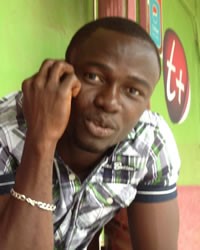Konyanka in Guinea

Photo Source:
Copyrighted © 2026
International Mission Board-SBC All rights reserved. Used with permission |
Send Joshua Project a map of this people group.
|
| People Name: | Konyanka |
| Country: | Guinea |
| 10/40 Window: | Yes |
| Population: | 699,000 |
| World Population: | 757,000 |
| Primary Language: | Konyanka |
| Primary Religion: | Islam |
| Christian Adherents: | 0.02 % |
| Evangelicals: | 0.02 % |
| Scripture: | Portions |
| Ministry Resources: | No |
| Jesus Film: | Yes |
| Audio Recordings: | Yes |
| People Cluster: | Manding |
| Affinity Bloc: | Sub-Saharan Peoples |
| Progress Level: |
|
Introduction / History
The Konyanka Maninka are a subgroup of the Maninka, also called the Malinke, descendants of the people of the once great Mali Empire. The empire amassed a great fortune by taxing the trade of gold and ivory in the region.
What Are Their Lives Like?
A majority of the Konyanka Maninka, like their ancestors, earn a living as farmers. They have grown cotton for centuries, as well as many grains and cereals. They also raise cattle, but they are primarily used in ceremonies or to gain prestige within the community. Surprisingly, very few people drink the milk. Many Konyanka travel long distances from home to work as merchants. The Konyankas live in large, walled-in villages.
What Are Their Beliefs?
Almost all the Konyankas are Muslim. Like most West African Muslims, they have put part of their faith in the spirit world, a belief not sanctioned by pure Sunni Islam.
What Are Their Needs?
Very few Konyanka believe in Christ as their savior. That means that they must hear the gospel from someone outside their community.
Prayer Points
Pray for the Lord to bless the Konyanka s harvests as a testimony of his sovereignty and goodness.
Pray for Konyanka Maninka leaders to open the door to Christ's ambassadors.
Pray for the Lord to thrust out Holy Spirit-anointed workers among the Konyankas.
Pray for a powerful movement to Christ among every Maninka subgroup.